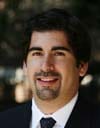More and more Americans are choosing to receive medical treatment — even complicated surgeries — in foreign countries to save big money. The practice is called “medical tourism,” but do the risks to consumers outweigh the savings?
That’s an important question, says Nathan Cortez, SMU Dedman School of Law assistant professor, who is focusing his research in health law on this emerging medical market.
“Patients take a calculated risk by seeking medical care overseas in regulatory systems that may not offer the rights or protections they expect,” Cortez says.
Interviewed for National Public Radio last November, he warned that although patients are free to travel overseas and reap whatever savings they can find, the international shop-around could affect how U.S. hospitals pay for care for the uninsured.
“We see this all the time with other industries,” Cortez told NPR. “Health care has been notoriously a local industry, and now it’s … succumbing to globalization like other industries have.”
Cortez has published the first comprehensive look at how domestic policy-making can offer American medical tourists some level of consumer protection. “Patients Without Borders: The Emerging Global Market for Patients and the Evolution of Modern Health Care” is included in the winter 2008 issue of the “Indiana Law Journal.”
Attempts to restrict patient travel may not be effective, Cortez warns. But he offers some practical approaches to help protect American patients: Regulating the activities of brokers and others who arrange for U.S. patients to travel overseas could provide access to information about the quality of care outside the United States.
Lawmakers could require employers or insurers that encourage patients to have surgery overseas to pay for pre-screening and post-operative care in the United States.
Lawmakers could require employers to share a minimum portion of the cost savings with patients willing to have surgery overseas, which would partially compensate them for any additional risk they may bear.
Although lowering the cost of medical care is a universal concern, Cortez says there is no evidence of American employers requiring employees to seek cross-border treatment. But neither are cost-conscious companies who are quietly adding foreign hospitals to their provider networks seeking publicity for those additions.
“California is the only state where you can buy insurance plans that require treatment outside the United States,” Cortez says. “It’s a niche market for the immigrant population there — you agree to go to Mexico.”
Cortez was a featured speaker at a March symposium on cross-border health care hosted by the Wisconsin International Law Journal, and is conducting research for that publication on the underlying trends that encourage medical tourism.
“I argue that the practices and standards in the medical industry are becoming more similar across borders, which makes medical tourism possible,” Cortez says.
Cortez teaches courses in administrative law, health law, FDA law and the legislative process. Before joining SMU in fall 2007, he practiced with the Washington, D.C., firm of Arnold & Porter representing medical technology clients, with a special emphasis on health care fraud and abuse, FDA enforcement and health privacy. He earned a J.D. from Stanford.
SMU is a nationally ranked private university in Dallas founded 100 years ago. Today, SMU enrolls nearly 11,000 students who benefit from the academic opportunities and international reach of seven degree-granting schools. For more information see www.smu.edu.
SMU Dedman School of Law was founded in 1925 and enjoys a national and international reputation of distinction, with graduates who have distinguished themselves as global leaders in law, business and government, and as prominent members of the judiciary.
SMU has an uplink facility located on campus for live TV, radio, or online interviews. To speak with an SMU expert or book an SMU guest in the studio, call SMU News & Communications at 214-768-7650.
 More and more Americans are choosing to receive medical treatment — even complicated surgeries — in foreign countries to save big money. The practice is called “medical tourism,” but do the risks to consumers outweigh the savings?
More and more Americans are choosing to receive medical treatment — even complicated surgeries — in foreign countries to save big money. The practice is called “medical tourism,” but do the risks to consumers outweigh the savings?
 Help wanted: Principals who embrace change in wake of Race to the Top
Help wanted: Principals who embrace change in wake of Race to the Top Observed by Texas telescope: Light from huge explosion 12 billion years ago reaches Earth
Observed by Texas telescope: Light from huge explosion 12 billion years ago reaches Earth Low IQ students learn to read at 1st-grade level after persistent, intensive instruction
Low IQ students learn to read at 1st-grade level after persistent, intensive instruction Richest marine reptile fossil bed along Africa’s South Atlantic coast is dated at 71.5 mya
Richest marine reptile fossil bed along Africa’s South Atlantic coast is dated at 71.5 mya Satellite view of volcanoes finds the link between ground deformation and eruption
Satellite view of volcanoes finds the link between ground deformation and eruption Comet theory false; doesn’t explain cold snap at the end of the Ice Age, Clovis changes or mass animal extinction
Comet theory false; doesn’t explain cold snap at the end of the Ice Age, Clovis changes or mass animal extinction